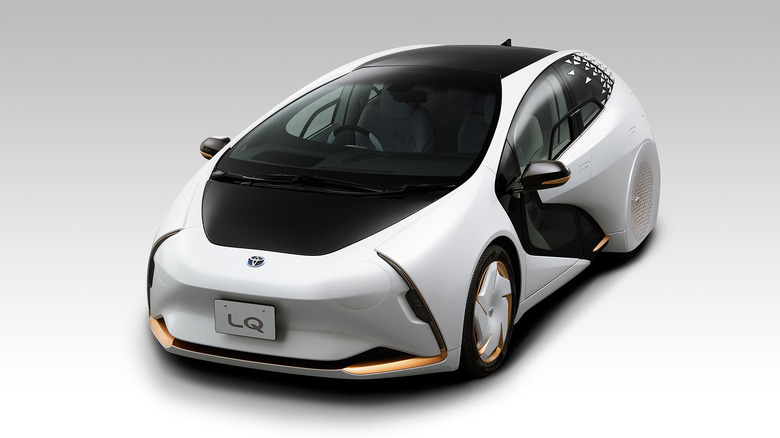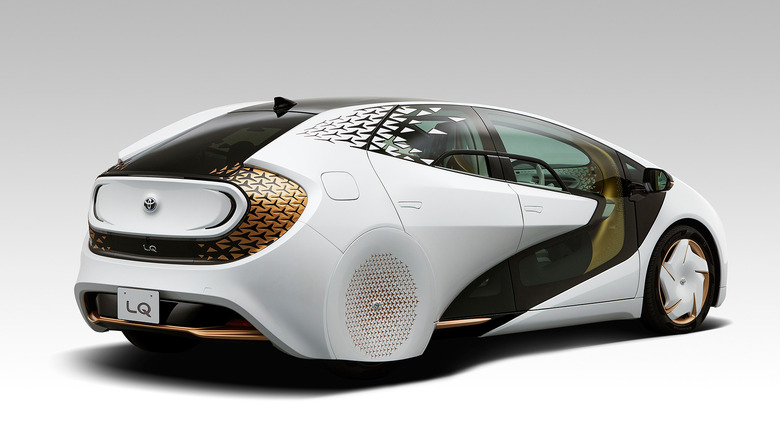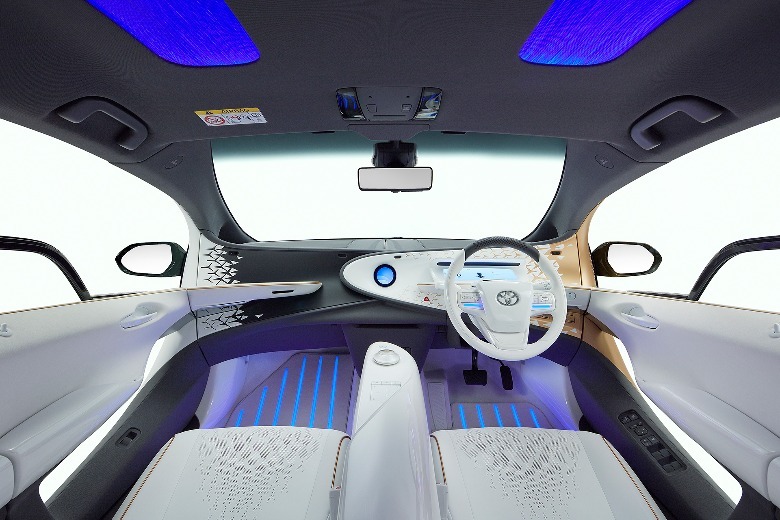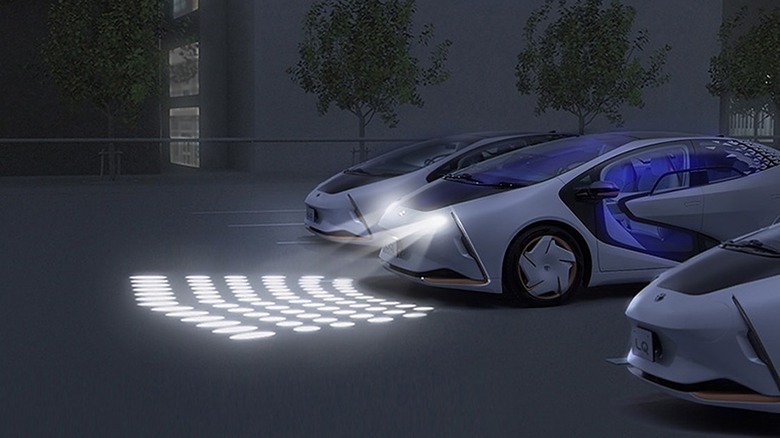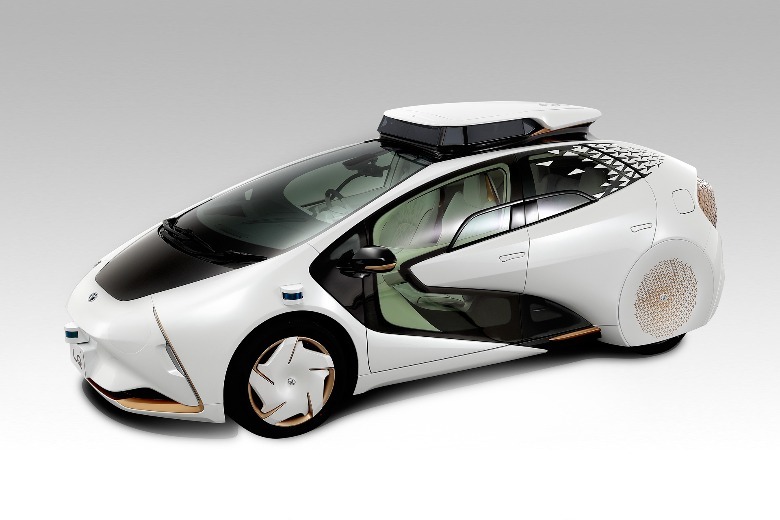Toyota LQ: The Cool EV Concept That Will Never Come To Market
It's funny when you think of Toyota's inhibitions in fully embracing the EV race when the automaker — and fellow Japanese auto giant Honda — were the first to introduce electrified, mass-market hybrid cars like the Prius and Insight. Furthermore, Toyota has talked about autonomous driving, artificial intelligence (AI), and electrification since 2017 with its Concept-i EV: a molten piece of automotive art equipped with fancy gullwing doors.
However, Concept-i evolved into the LQ Concept just in time for the 2020 Tokyo Olympics. It has a slender front end reminiscent of the all-new fifth-gen Prius, and it's one of those cool EV concepts that will never make it to commercial production.
This is despite having space-age features common to mainstream EVs and internal combustion cars. When it came out in 2019, Toyota claimed the LQ was a car that wishes to build an "emotional bond" with its driver and passengers, and it did it with Yui, an onboard AI assistant.
SAE Level 4 autonomy & AI assistant
Legacy automakers are scrambling to become the next big thing in autonomous driving. Mercedes-Benz's Drive Pilot is the first Level 3 autonomous system to get U.S. approval in early 2023. Other self-driving systems like Tesla's Autopilot and GM's Super Cruise are still on Level 2 autonomy, but Toyota's LQ concept car has Level 4 self-driving autonomy.
"In the past, our love for cars was built on their ability to take us to distant places and enable our adventures," said Daisuke Ido, Toyota LQ development leader, in a 2019 press release. "With the LQ, we are proud to propose a vehicle that delivers a personalized experience, meets each driver's unique mobility needs, and builds an even stronger bond between car and driver."
The Toyota LQ's Level 4 automated driving feature includes an automated valet parking system developed with Panasonic. The system uses cameras, sonar, radar, 2D road mapping, and ambient data to find a suitable parking space with zero human intervention.
The Toyota LQ also features Yui, an onboard digital assistant powered by artificial intelligence. To reduce stress, Yui could interact with the driver and passengers using voice commands, in-cabin illumination, and seat functions. Furthermore, the LQ has an innovative human-machine interface (HMI) that uses lighting displays on the roof and footwells to communicate with the driver and passengers.
In addition, it has "digital micromirror devices" in its headlights capable of projecting "complex figures" on the road ahead — a feature Audi introduced recently called Digital Matrix LED headlights.
Air purification coating
The Toyota LQ's most compelling feature is what the brand calls an "air purification coating" system developed with Cataler Corporation and Aisin Chemical Co., Ltd. According to Toyota, the feature works via a catalyst coating that turns ozone into oxygen using the radiator fan. The system decomposes photochemical smog near the ground and produces oxygen as the vehicle moves.
Toyota claims the system could purify 6% of the ozone in 1,000 liters of air in an hour of driving, and it expects the technology to become standard in future commercial cars. Considering about 290.8 million vehicles are plying U.S. roads as of 2022, it's not hard to imagine what the LQ's air purification system could do if fitted to conventional cars.
Toyota has reshaped its EV roadmap following a leadership shakeup within the company ranks. It has since launched the bZ4X electric crossover, and promises to reveal new EVs in the following years. We suspect none will be like the LQ concept, but it's never too late for an auto giant like Toyota to reconsider.
